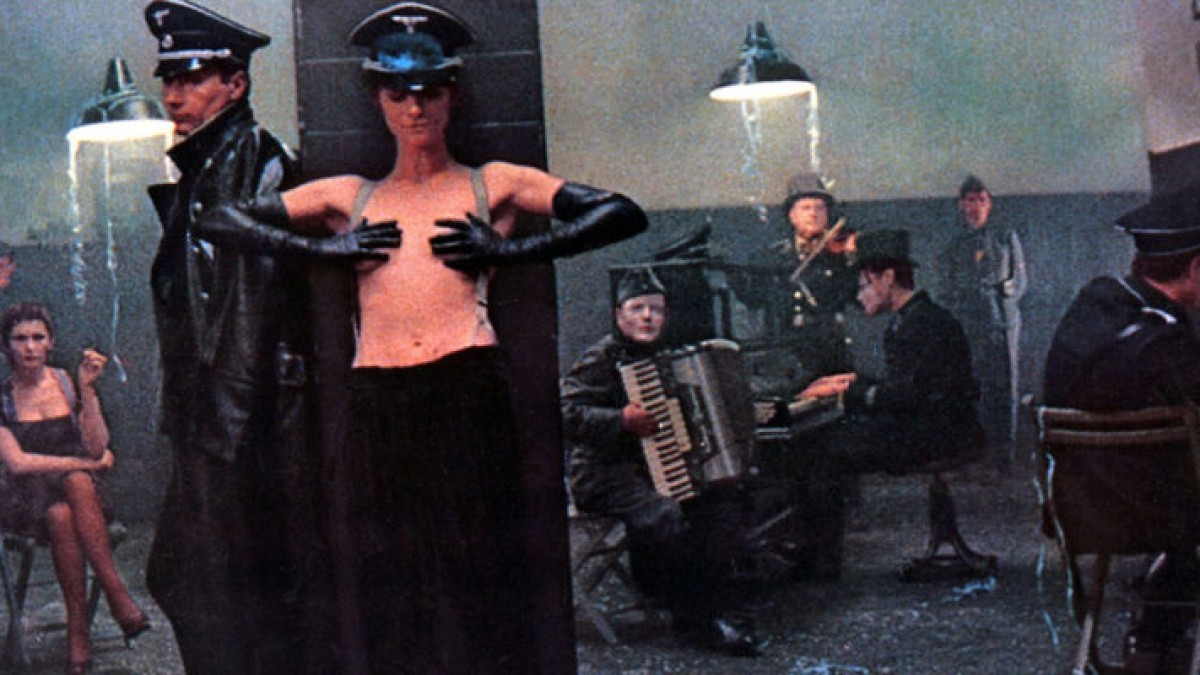
#de Lialiana Cavani hat mit THE NIGHT PORTER nicht nur einen der kontroversesten Filme
der 70er gedreht. Es ist auch ein verstörend schöner und gleichzeitig notwendig gesellschaftskritischer Wien-Film, der die
großartige Charlotte Rampling weltberühmt gemacht hat.
#en Lialiana Cavani's THE NIGHT PORTER is not only one of the most controversial films of the 70s. It is also a disturbingly beautiful and necessary socio-critical film based in Vienna that made the great Charlotte Rampling world famous.
#en Lialiana Cavani's THE NIGHT PORTER is not only one of the most controversial films of the 70s. It is also a disturbingly beautiful and necessary socio-critical film based in Vienna that made the great Charlotte Rampling world famous.
#de Wien, 1957. Zwölf
Jahre nachdem Max als Nazi-Offizier in einem Konzentrationslager Grauentat um Grauentat begangen hat, arbeitet er als Nachtportier
in einem prestigeträchtigen Hotel. Die Unternehmungen, die verhindern sollten, dass seine Verbrechen ans Tageslicht kommen,
werden durch das Auftauchen von Lucia erschwert. Max und Lucia kennen sich aus dem KZ und es verbindet sie eine für Außenstehende
unbegreifliche Beziehung. Das unermesslich zugespitzte Täter-Opfer-Machtgefälle äußerte sich in ihrem Fall in einer gewalttätigen,
aber leidenschaftlichen SM-Liaison. Regisseurin Cavani inszenierte mit THE NIGHT PORTER einen der kontroversesten Filme der
70er. Unter Einsatz von hochgradig künstlerischen Filmmitteln, der damals nahezu prophetischen Anprangerung des männlichen
Blicks im Film und der Entblößung einer verlogenen, österreichischen Nachkriegsgesellschaft, gelang ihr ein zeitloses Meisterwerk.
(Julian Stockinger)
#en Vienna, 1957. Twelve years after Max committed war crimes as a Nazi officer in a concentration camp, he works as a night porter at a prestigious hotel. The undertakings to prevent his crimes from coming to light get complicated by the appearance of Lucia. Max and Lucia know each other from the concentration camp and they share a relationship that is incomprehensible to outsiders. With THE NIGHT PORTER Cavani directed one of the most controversial films of the 70s. Using highly artistic stilistic elements, the then almost prophetic denunciation of the male gaze and the exposure of a mendacious, post-war Austrian society, she succeeded in creating a timeless masterpiece.
#en Vienna, 1957. Twelve years after Max committed war crimes as a Nazi officer in a concentration camp, he works as a night porter at a prestigious hotel. The undertakings to prevent his crimes from coming to light get complicated by the appearance of Lucia. Max and Lucia know each other from the concentration camp and they share a relationship that is incomprehensible to outsiders. With THE NIGHT PORTER Cavani directed one of the most controversial films of the 70s. Using highly artistic stilistic elements, the then almost prophetic denunciation of the male gaze and the exposure of a mendacious, post-war Austrian society, she succeeded in creating a timeless masterpiece.







